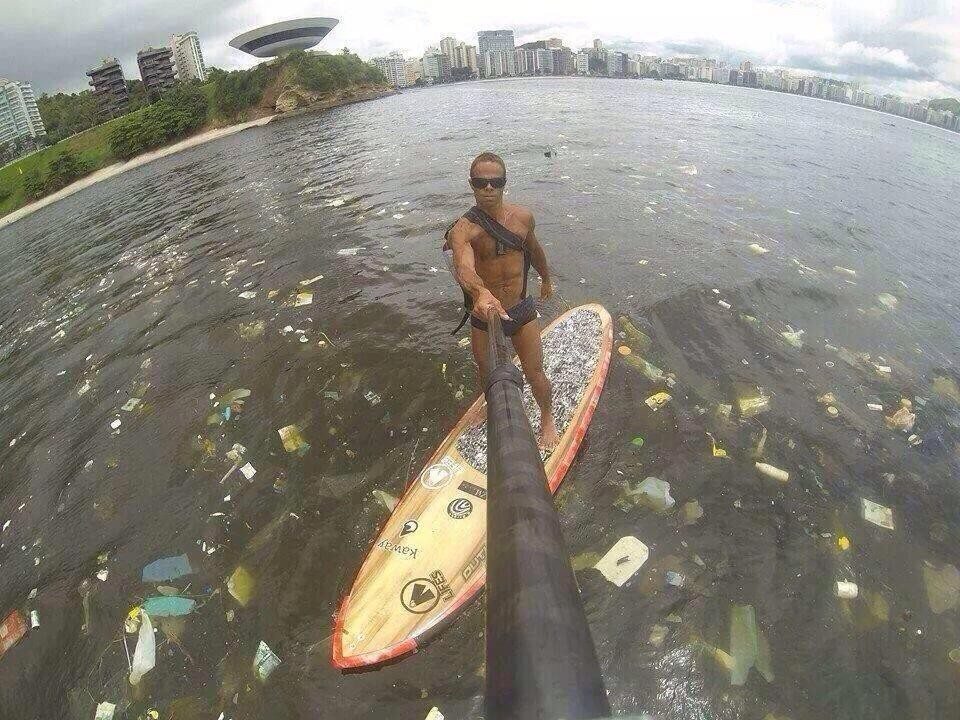An investigation by the Associated Press revealed that there are “dangerously high levels of viruses and bacteria from human sewage in the Olympic and Paralympic venues.”
With just over a year to go before the start of the 2016 Rio de Janeiro Olympic Games, this information is deeply concerning. The medical director of the International Olympic Committee claims everything is on track to be safe to compete it, but further questioning revealed they were only testing for bacteria in the water, rather than viruses. The AP reported that these viruses are a result of untreated sewage flowing freely through the streams and rivers, into the Olympic waters. These “viruses are known to cause respiratory and digestive illness, including explosive diarrhea and vomiting, but can lead to more serious heart, brain and other diseases.”
A health expert in risk assessment for waterborne viruses from the United States, Kristina Mena, reportedly reviewed the data and believes that with only ingesting 3 teaspoons of the water, international athletes will have a 99% chance of infection. Those competing in open water swimming, triathlon, sailing, canoeing and rowing will all be at risk. Any of the viruses can enter the body through the mouth, eyes, any orifice, or small cut. Even those athletes out of the water in boats will be at risk because of mists and splashing.
There are several test events taking place in Guanabara Bay right now, and several of the athletes have fallen ill already. A sailing coach for Austria’s 49-class sailing team told the AP that these are the worst water quality conditions they have ever seen in their sailing careers. Sailors are being forced to keep bottled water on hand to instantly wash off any contaminated water that is splashed on them during training or a race. They shower immediately upon returning to shore and even then, sailors are still falling ill.
For further detail about the investigation, view the original AP article here.

IOC message to Olympic athletes: #EatS__tAndDie.
I didn’t realize there was another type of diarrhea other than explosive diarrhea. Isn’t that redundant?
If people in sailboats are getting sick just imagine what it will be like for swimmers. Truly disgusting!
I’ve almost threw up while reading that article.
The surprise is not that the issue hasn’t been fixed. The surprise is that the IOC ever believed the issue could be fixed in the first place. Over half the sewage in Rio ends up the surrounding waters untreated. The infrastrucure at the micro level doesn’t exist to make marcro-infrastructure projects effective. Short of leveling the Favelas and relocating those people elsewhere in the country years ago, the water quality was bound to be, quite literally, crappy.
Some of these sport federations need to have water quality standards and then enforce them. It shouldnt take athlete death or serious illness to make this so obvious.
Its laughable that they put in the bid like we are adding 8 sewage treatment plants to take care of the problem an then they ignore it. The IOC defends the water. This is the one time where I like to let the environmental wackos loose on the issue and cheer them on.
Holding a major athletic competition in a city of millions with almost no sewer system!
If I was Brazilian, this would EMBARRASS me. Disgusting.
What a surprise… One of the open water locations is right next to an airport